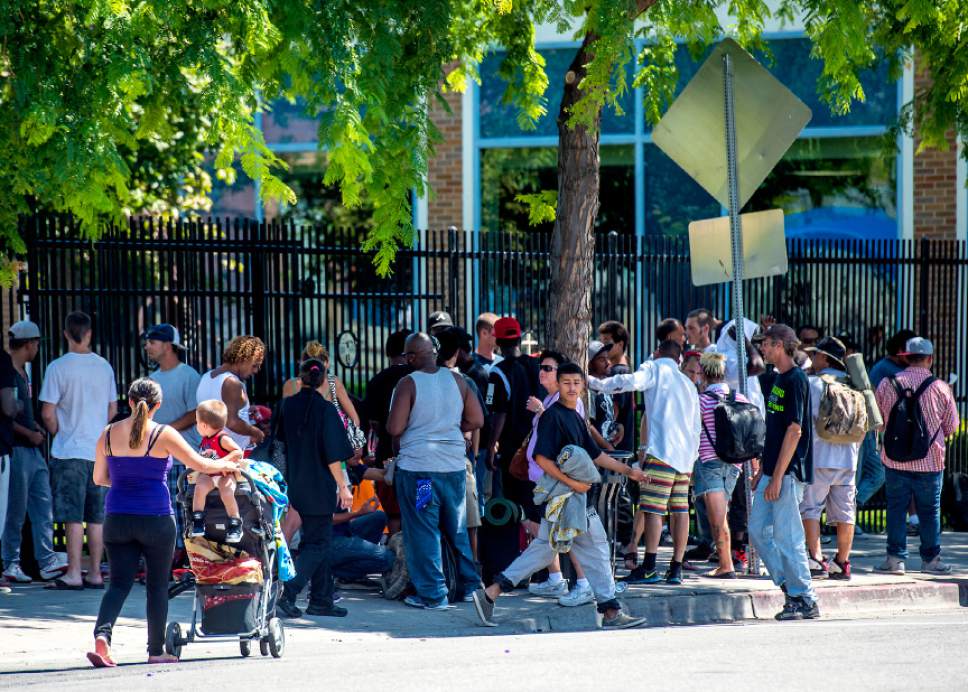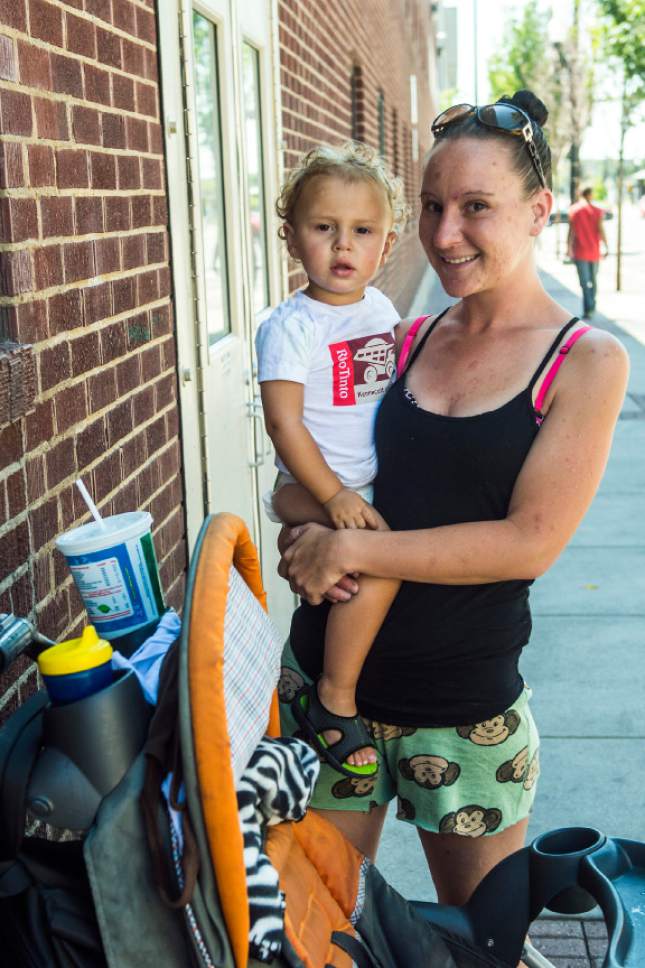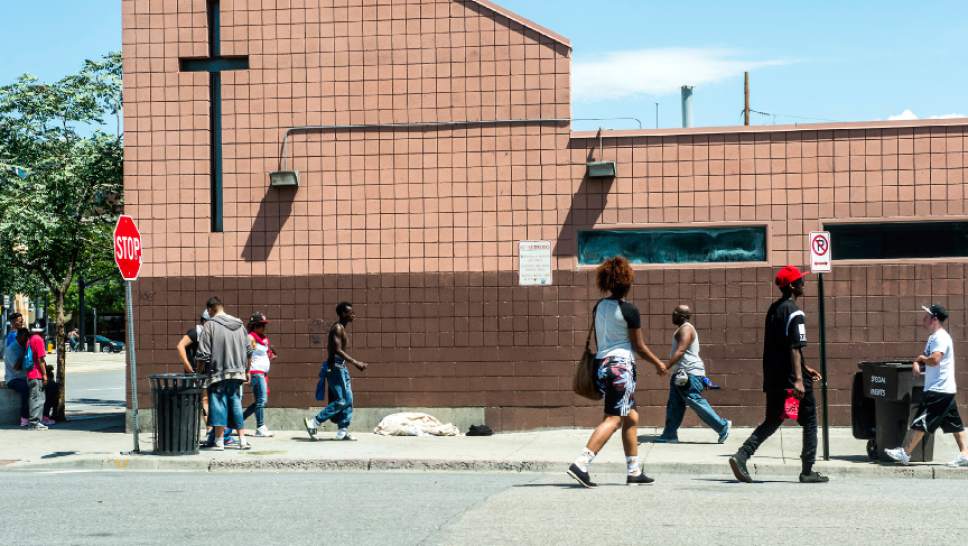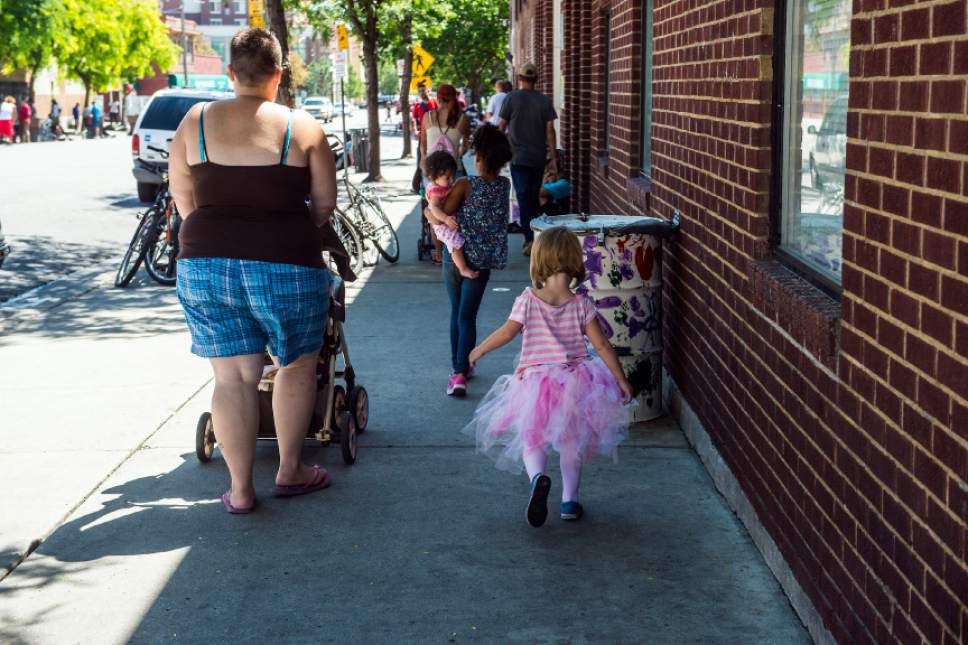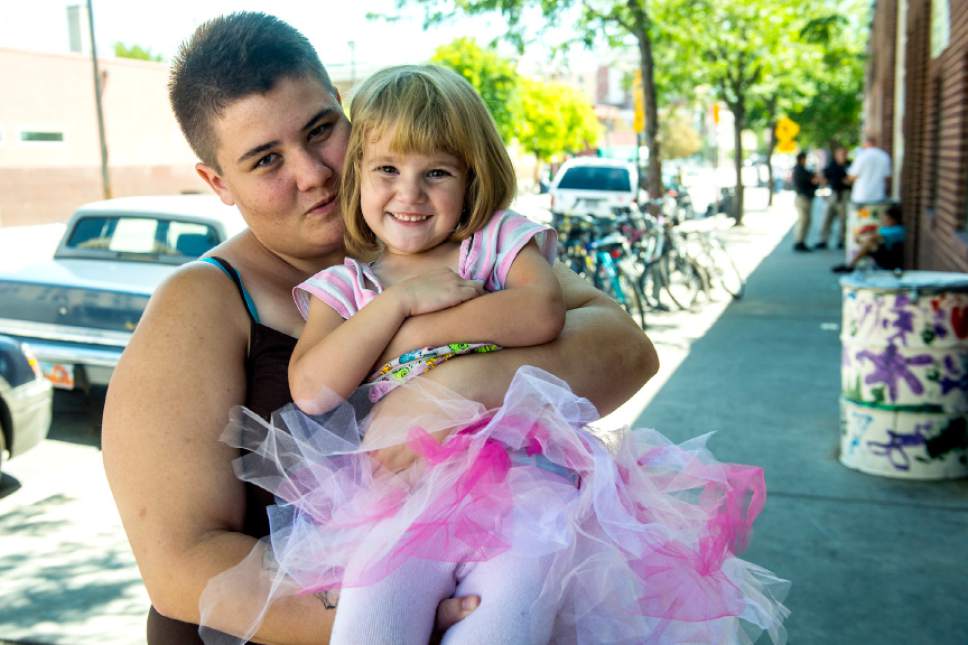This is an archived article that was published on sltrib.com in 2015, and information in the article may be outdated. It is provided only for personal research purposes and may not be reprinted.
Women with children seeking emergency shelter at The Road Home in downtown Salt Lake City can be exposed to disturbing sounds and sights, including drug use and violence — and that is just plain unacceptable, according to a Texas-based consultant affiliated with the Pioneer Park Coalition.
Robert Marbut was in Salt Lake City again this week with a critique of homeless services in the depot district in and around Rio Grande Street. He also came armed with a host of solutions that he said he would present to Gov. Gary Herbert, as well as members of Mayor Ralph Becker's commission on homeless services that is now evaluating the shelter and allied organizations.
Before anything else is done, Marbut said, young families, particularly women with children, should immediately be separated from the male population at the shelter.
Although most of the people at the 1,200-bed shelter are law-abiding citizens down on their luck, there is a percentage of more troubled residents.
Fifty-one sex offenders list The Road Home as their residence, according to the state registry. The shelter also is a regional hub for drug trafficking, police say. Add to that mental illness and it can spell risk for youngsters and women, many of whom left their homes to escape domestic violence.
Inside the building, women and children are in separate areas divided by hallways and doors. But outside they mingle. There is a secure playground for children but needles and empty heroin packages have reportedly been found within the enclosure.
Dee Lopez is staying at The Road Home with three children, ages 8 and 2 years, and 10 months.
"Our kids see things they shouldn't see. [The men] are talking about heroin and crackin' and the kids shouldn't hear that," she said. "And the teenage kids want to go hang out with them."
Although no one takes issue with Marbut's notion that women and children should be separated from the men at the shelter, Matt Minkevitch, the shelter's director, said he would rather spend the money to get those women and children in permanent housing.
"We need to create the kind of housing so that children aren't homeless," he said.
Using rent vouchers, The Road Home has placed many women and children in housing. But, Minkevitch added, there is a dearth of affordable housing along the Wasatch Front and that is among the root causes of homelessness.
Marbut suggested that The Road Home's overflow shelter in Midvale be used for women and children. That shelter, with 300 beds, operates only from October through April. Last year the Midvale City Council voted not to allow the facility to operate there year-round.
Whether that could change is unclear, said Glenn Bailey, director of Crossroads Urban Center.
He said Midvale is one of the few municipalities to help with homeless. "But I don't know if there is the money or the political will to do it," he said.
Anne Burkholder, of the YWCA, said The Road Home "is doing great work" with available resources.
Among other things, The Road Home has helped women in the YWCA shelter find housing.
But, she added, it would be better if families were separated from the male population.
"It is concerning for the safety of women and children if there is contact with strange men," Burkholder said.
Creating separate shelters for women and children would correct just one of the problems that Marbut sees as a "dysfunctional" homeless system in Salt Lake City, but the one he said was most urgent.
He labeled it a "root structural problem" that had no central coordination — including an intake center where the newly homeless can get information on available services.
The mayor's 30-member commission, led by Utah Jazz owner Gail Miller and former mayor Palmer DePaulis, is expected to make recommendations by year's end. But Marbut remains skeptical of what he characterized as a too-many-bakers approach. "A gigantic committee will not solve Salt Lake City's problems of homelessness."
Becker defends the approach as the most sensible one.
"This is something where you need to get the whole community together," he said in a Trib Talk interview Tuesday. "We are on track to have an approach that we can then gather all of our resources around to be much more effective."


